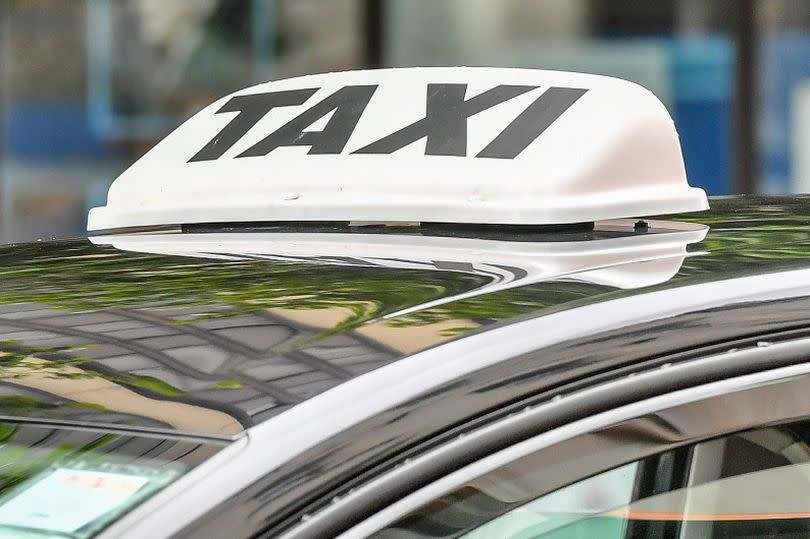Cambridge taxi driver says they often earn less than minimum wage

A Cambridge taxi driver has said they can often end up earning below the minimum wage working in the city. Mohammed Irfan said he had been earning less over the last few years, which meant he was struggling to keep up with “rocketing living costs”. Other taxi drivers in the city also shared the financial issues they were facing, with some raising concerns that taxi drivers could be “priced out” of the city.
The drivers also shared concerns that a licensing policy change put in place by Cambridge City Council could make their situations harder. They called for the city council to further delay its policy change that would require them to buy a ultra-low emission or electric car when they needed to replace their existing taxis.
However, the city council highlighted that the taxi drivers had known about the policy change for four years, and that the implementation had already been delayed for two years. Back in 2018 the city council agreed a policy change that from April 2020 all new saloon taxis licenced by the authority needed to be zero or ultra-low emission.
Read more: Parking scheme on Cambs street could cause 'a lot of ill feeling'
Read more: Developers set out hope to turn Cambridge industrial park into new ‘urban science quarter’
Under this change a phased approach was planned for existing drivers to switch over to zero or ultra-low emission vehicles when their current car came to the end of its taxi lifespan. The city council said this policy change did not apply to wheelchair accessible taxis.
However, due issues around the availability of ultra-low emission and electric cars, the city council agreed in 2022 to delay the implementation of the new policy for existing drivers for two years. The authority reviewed the policy earlier this year and confirmed the change, meaning existing drivers would have to buy a zero or ultra-low emission car when it came time to replace their taxi.
However, many drivers called for this policy to be reviewed again, highlighting the financial struggles they are facing. Mr Ifran said his current self charging car was “reliable and cost effective” and raised concerns about the impact having to buy a new electric or ultra-low emission car would have on his finances. He said: “Over the last few years for most months my income has averaged below the minimum wage, so it’s been a real struggle to keep up with rocketing living costs and increased costs on debts and my mortgage as more bills pile up.
“I understand the council’s goal to improve emissions in the city. Being someone who does worry about climate change and the impact it’s already having, especially on developing countries, I accept we all have some responsibility to minimise the factors causing the devastation to our planet and the threat to our future generations as well as the other species we share our planet with. But I believe the current decision not to extend standard hybrids won’t make much difference to Cambridge’s air quality.”
Another taxi driver, Cihan Bashan, said he lives in a flat and would have to rely on “pretty expensive public charging stations” if he had to switch from a to a plug-in hybrid or fully electric car. He said this policy presented an “enormous financial burden” for him when he said he was still recovering from the damages caused by the Covid-19 pandemic.
Concerns were also raised that some taxi drivers could be “priced out” of Cambridge if they faced even higher costs to operate in the city. One taxi driver said they would consider handing back their plates to the city council and becoming a licensed taxi driver at another authority if the policy change was not delayed.
Councillors considered the taxi drivers concerns at a licensing committee meeting this week (June 24). Councillor Karen Young asked for clarification around how long taxi drivers had known about the change of policy. Officers said drivers will have known about the policy change since 2020, and highlighted that the city council had agreed to delay fully implementing the change for existing drivers for two years.
They added that if a further delay was agreed it would push back the date the city’s taxi fleet would be ultra-low emission or fully electric to around 2037. Councillor Rosy Moore highlighted that the city council had declared a climate emergency and told the meeting that they had also received calls from some members of the public in the past not to not back track on the policy.
She also said only hackney carriage taxis licensed by the city council were allowed to use the city centre taxi ranks. Cllr Moore added that if drivers from other areas were using these ranks she asked for people to contact the city council so it could take action. A majority of councillors on the committee ultimately voted in favour of keeping the policy change.

 Yahoo News
Yahoo News 
